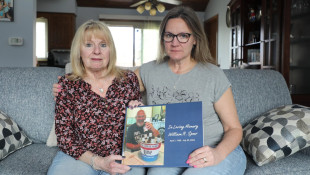
A significant portion of Asian American and Native Hawaiian/Pacific Islander adults in the U.S. have a hard time accessing health care and insurance coverage due to language barriers.
Cedric Fauntleroy/UnsplashA significant portion of Asian American and Native Hawaiian/Pacific Islander adults in the U.S. have a hard time accessing health care and insurance coverage due to language barriers, according to a recent report from the Urban Institute.
The research suggests a greater need for more state and local level resources to address the issue.
State and federal law require health care providers who received federal funding to offer language services to patients with limited English proficiency. But a 2016 research study suggests that the availability of such language services vary widely across institutions and health care settings.
Reports also suggest that due to structural barriers, non-English speakers tend to have less leverage and ability to advocate for themselves if their rights are violated.
The new report found that in 2019, 1 in 4 Asian, Native Hawaiian and Pacific Islander adults reported having limited English proficiency, with variation by subgroup. Around 12 percent of Native Hawaiian and Pacific Islander adults reported having limited English proficiency compared to 40 percent of Chinese, Bangladeshi, Vietnamese, Nepalese and Burmese adults.
In Indiana, 3.1 percent of the population identifies as Asian alone or in combination with other races and 0.2 percent identifies as Native Hawaiian and Other Pacific Islander alone or in combination with other races according to the 2020 census.
“Despite stereotypes of some [Asian American and Native Hawaiian and Pacific Islander] people being a ‘model minority’ and not facing disadvantages, many in this community face several barriers that could reduce their access to health insurance,” said Jennifer Haley, senior research associate at the Urban Institute, in a press release.
Asian Americans have above-average levels of educational attainment. But the group is not a monolith. Some AANHPI people are put at a great disadvantage by the lack of data disaggregation – and that worsens health inequities, the researchers said.
“For instance, not separately measuring outcomes for subgroups of AANHPI people or grouping NHPI people within the larger Asian American group can hide harms and result in certain groups' health needs being deprioritized,” the report said, referencing research studies from 2021 and 2022.
As pandemic-related health insurance protections –– like Medicaid continuous coverage as required by the federal COVID public health emergency –– come closer to expiration, Haley said she worries that language barriers could get in the way of essential communications by health departments. This could be detrimental for people’s ability to maintain their health insurance coverage.
While Spanish is often an option in different health system settings, the diverse languages that these groups speak are rarely offered. Studies looking at accessibility to health care materials found that many states’ Medicaid websites, as well as the federal website where people can purchase Affordable Care Act marketplace health insurance coverage, only offer English and Spanish.
“State and federal officials must develop and target culturally and linguistically responsive resources to ensure that more people, including those with [limited English Proficiency], have the opportunity to improve their health and the health of their communities,” said Gina R. Hijjawi, senior program officer at the Robert Wood Johnson Foundation, in a news release.
The report looks at data from the American Society Census and offers a glimpse into the characteristics of subgroups of AANHPI in the U.S. For example, only a little more than half of AANHPI adults who have limited English proficiency were U.S. citizens in 2019 compared to 78 percent of their counterparts who were English-proficient. The report’s data analysis also suggests that those adults with limited English proficiency were twice as likely to have lower family incomes – below 200 percent of the federal poverty level on average – compared to those who were English-proficient.
This story comes from a reporting collaboration that includes the Indianapolis Recorder and Side Effects Public Media — a public health news initiative based at WFYI. Contact Farah at fyousry@wfyi.org. Follow on Twitter: @Farah_Yousrym.
 DONATE
DONATE





 View More Articles
View More Articles



 Support WFYI. We can't do it without you.
Support WFYI. We can't do it without you.